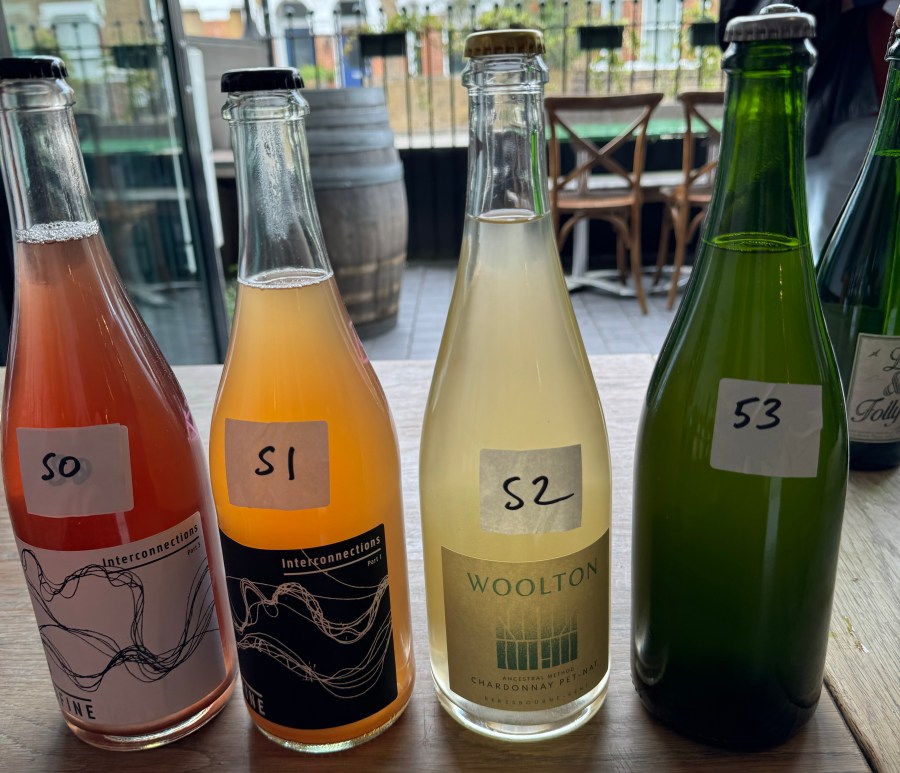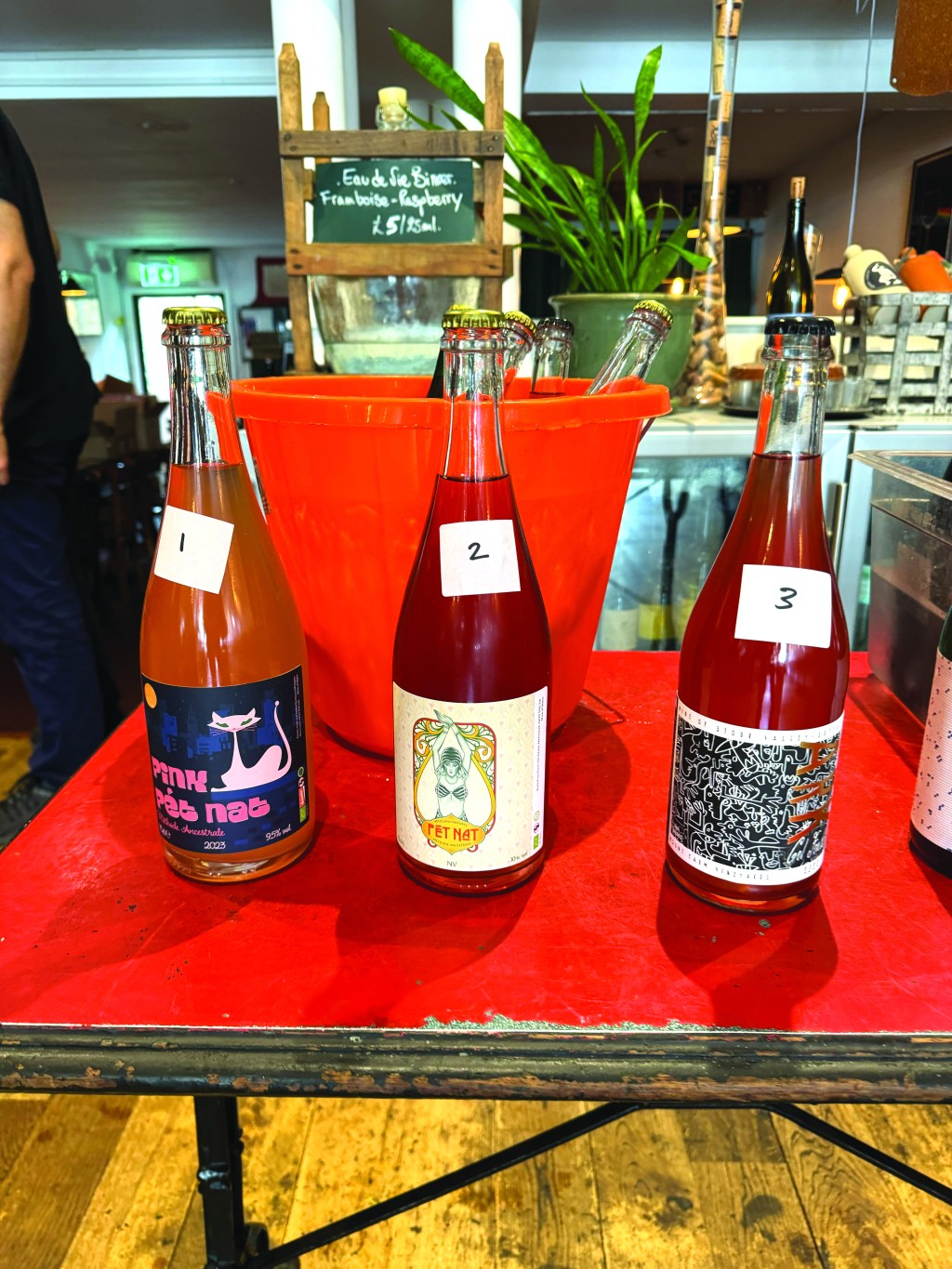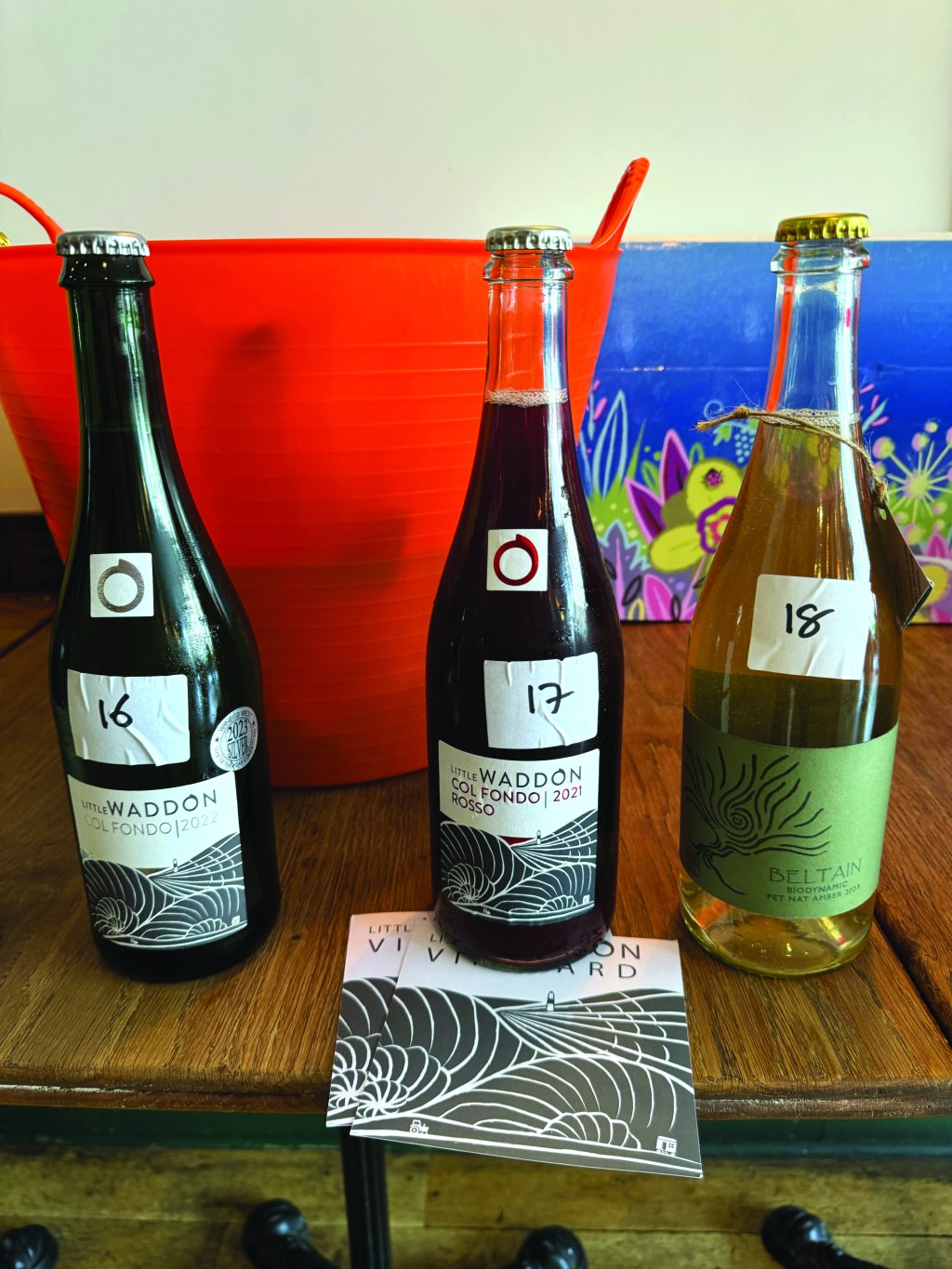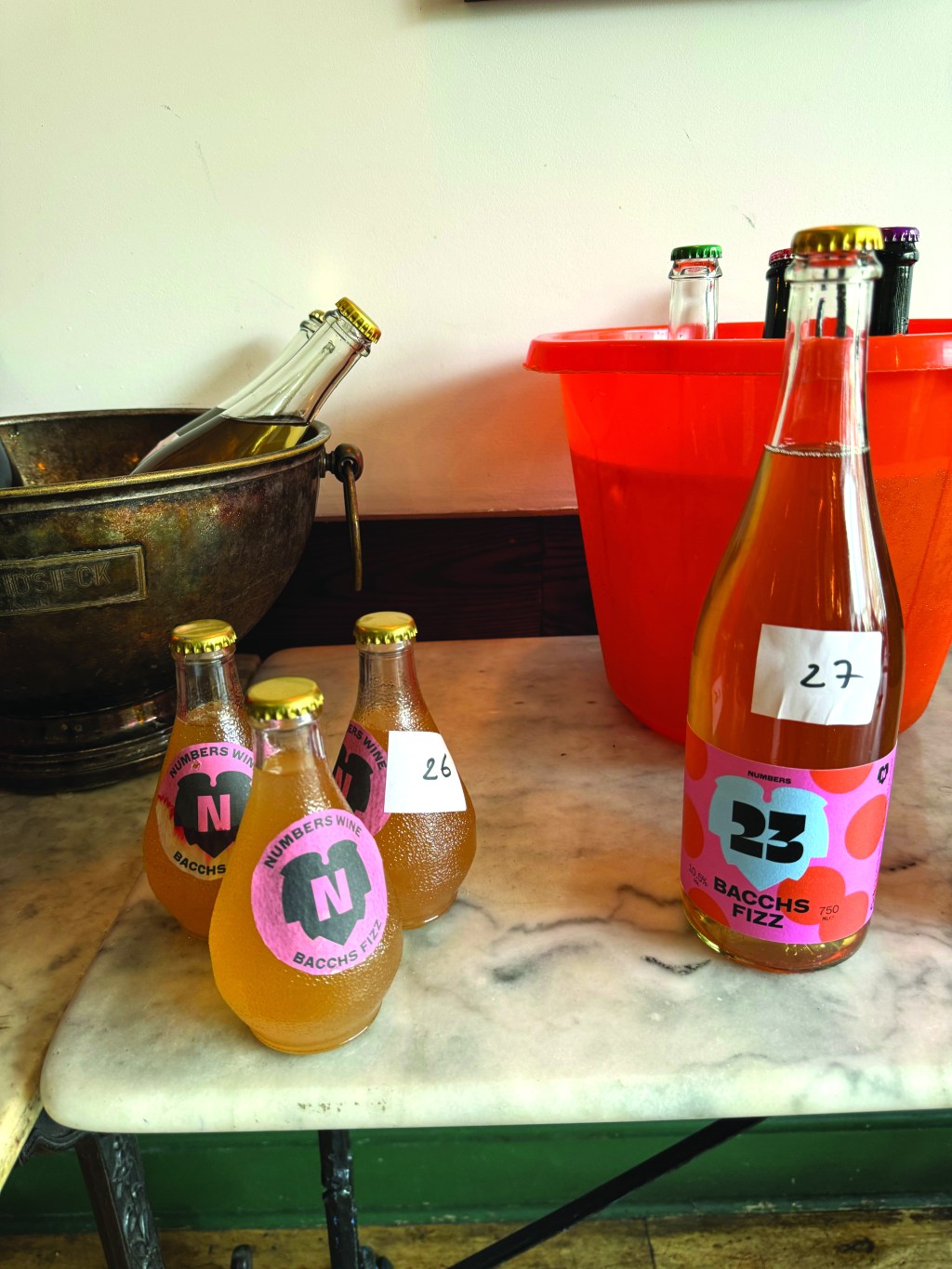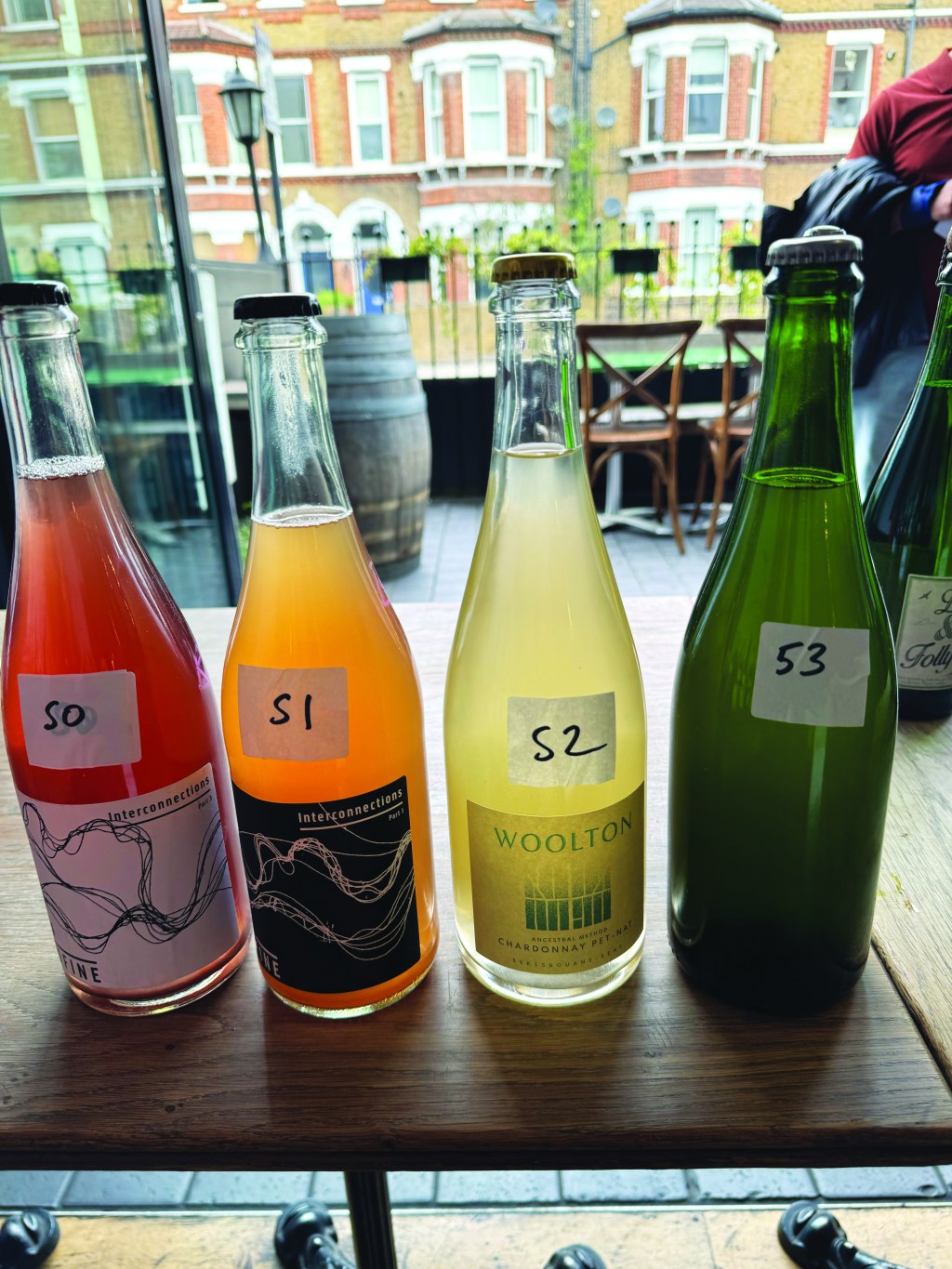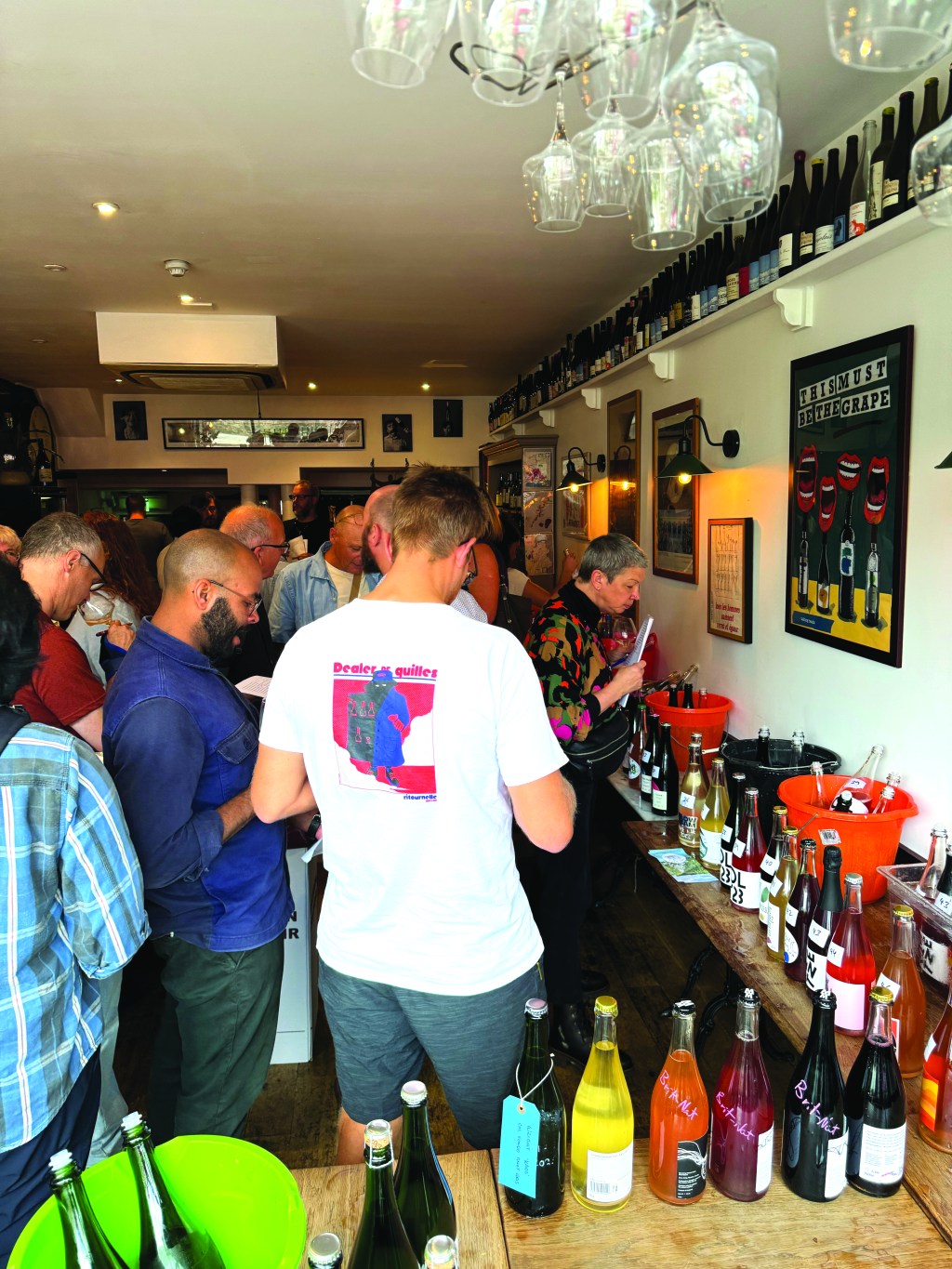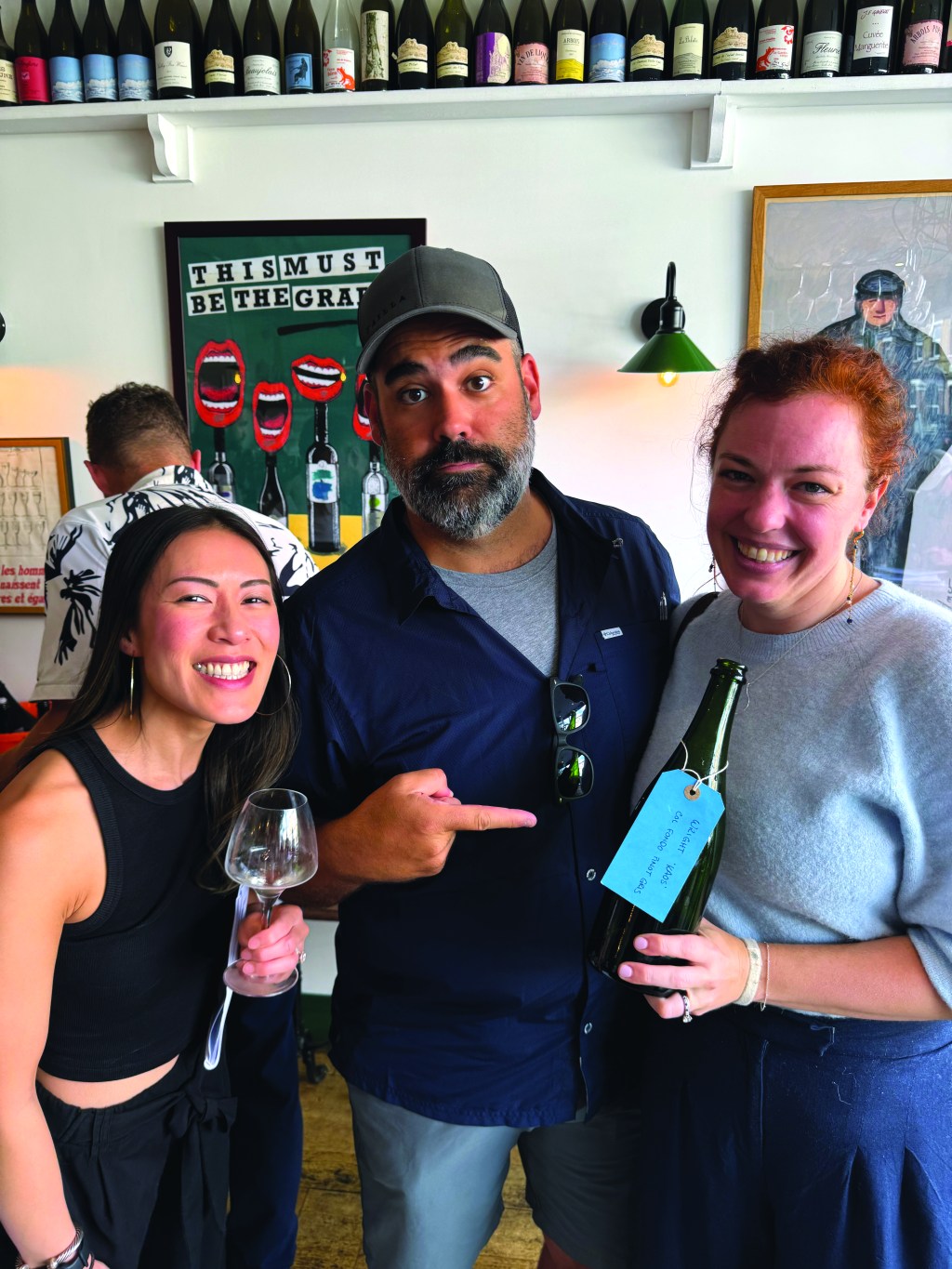Following a successful inaugural event in 2022, Tim Wildman MW hosted a second BRÍT-NAT tasting on 3 September at Soif restaurant in Battersea, showcasing over 50 wines from over 30 English and Welsh producers, each made in the pétillant natural, dubbed pét-nat style, writes Sophie McLean.
In only two years, this more creative style of winemaking is showing steady growth based on the total producers Tim estimates are now in existence. In 2022, 25 producers were making a wine in this style, a number Tim now considers to be 45, representing “an 80% increase”.
“I think this tasting is a good thing, there aren’t too many like it” said Alex Hurley, winemaker at LDN CRU whose Pinot Gris Sparkling Rosé 2022 was one of the wines on show. “It’s the creative wine of the vintage,” he added. “We make culinary-focused still and sparkling wines but this one tends to be a reflection of me – a ‘what happens if I do this?’ kind of wine.”
Backing up this statement Tim Wildman said: “None of the wines on show are primarily ‘terroir’ driven, instead they reflect the personalities of the winemakers and their individual approaches to winemaking.” According to Tim you can think of wine as being divided into two categories, fine wine and fun wine, and pét-nat definitely sits in the latter.
Across the fifty wines on show, this bottled fun is best viewed through an aromatic and chromatic lens; banana, cotton candy, rose hips and cheese rind are just some of the repeated tasting notes. There are more pinks and reds on show than whites, colours that pop alongside the labels, all similarly playful in nature.
Grapes range from more recognisable cool-climate friends to the more unique ‘Triomphe’, ‘Phoenix’, ‘Regent’ and ‘Orion’ – the latter used by Ark Wines, the grapes are from Mount Farm Vineyards in East Anglia, whose profits are donated to Eden-Rose Coppice Trust in honour of the vineyard owner. Tim Wildman MW makes pét-nat in England under the Lost in a Field label where the motto is ‘Drink the Rainbow!’
BRÍT-NAT featured 50 wines many carrying joyful names such as Here Be Dragons Forbidden Fruit, Frolic, Good Day and the top contender for most creative named wine,
Last Night a DJ Seyval’d My Life which is a méthode ancestrale, from producer Quatro Mustachios in West Sussex.
Outside of the creativity, the other benefit of these wines from a production side is that they are quicker to make. “You can harvest in September and be in the market on sale in April the following year,” said Alex. An attractive proposition when it comes to cash flow. There is not a long waiting period for these wines to age on their lees or in barrel, or a need to use cages or expensive foil casing; most pét-nat are bottled under crown cap, drawing quicker ROIs when compared to their traditional method counterparts.
Easily the most surprising wine on show of the day was not the funkiest in the room, but the most commercial- a pét-nat rosé commissioned for Marks & Spencer, by buyer Dror Nativ MW, first released in April and priced at the lower end of many others on show at £15.99 a bottle. Much ‘cleaner’ than many of its peers, it is made with more traditional varieties (pinot, chardonnay dominant) using the pét-nat intermission method allowing it to be undisgorged leaving yeast sediment to add creaminess – something a little safer in style than some others, but equally daring in category for such a mainstream outlet. It should also be noted that Gen Z are reportedly returning to the high street retailer for fashion. A style renaissance all round, and looking at the pét-nat drinking demographic, could mean, whoever is most daring, wins or at least has some fun by trying.
BRÍT-NAT featured 50 wines from the following 32 producers
- Ancre Hill
- Ark Wines
- Blackbook
- Black Mountain
- Davenport
- Domaine Hugo
- Good Day by Top Cuvée
- Gros Canon
- Ham Street
- Hidden Spring
- Langham
- Little Pomona
- Limeburn Hill
- London Cru
- Lost in a Field
- Little Waddon
- Marks & Spencer
- Matt Gregory
- Numbers
- Quatro Mustachios
- Sandridge Barton
- Slow Beam
- The Dell
- Tillingham
- Titch Hill
- Trevibban Mill
- Whinyard Rocks
- Woodfine
- Woolton Farm
- Wright
- Vagabond
- Vindemiate
For more like this, sign up for the FREE Vineyard newsletter here and receive all the latest viticulture news, reviews and insight

